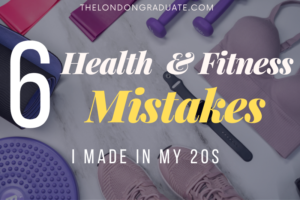If you are job hunting at the moment, you are likely familiar with the video interview. Instead of going into an office and sitting across from a panel of scary interviewers, you stay in your own home and answer questions over a video call.
This format might be new and unfamiliar, but with a little practice you should be able to perform just as well over video, if not better, than when face to face.
In the last 12 months, I have experienced being on both sides of the interview panel. Here are my tops tips for success.
Prepare in the same way
A video interview is still an interview. The company is still the same company. The role is still the same role and the questions are unlikely to be any different from normal.
This means practice and prepare for your video interview in the exact same way you would for any other type of interview.
- Research the company you are applying for
- Reread the job description and any other information about the role you are applying for
- Research the interview format and any frameworks for how you will be marked
- Write a list of your strengths and why the role is suitable for you
- Prepare a list of example interview questions and practice answering them
Preparation and practice really is the key to interviews. If you want to feel confident going into any interview, make sure you have prepared as much as you possibly can.

Sound and Video quality is more important than what you wear.
A lot of articles will tell you that you should dress the same as you would in a face to face interview. They will tell you to wear your suit and put on smart shoes even though no-one can see them. Don’t wear pyjamas or joggers on your bottom half!
Other articles also advise to make sure you are sitting in front of a plain background with nothing distracting or controversial behind you. They will stress to tidy up your space before the interview and ensure the room that you pick to do the interview will be quiet and undisturbed.
This is good advice. However, as someone who has interviewed candidates over video calls, I don’t really care what you are wearing and what is going on behind you.
Providing you, and the room you are in, don’t look unprofessional then it will not make an impact on me. I care more about what you have to say.
Interviewers understand that you are in your own home and don’t expect it to be as perfect as an office.
I advise wearing something that makes you feel confident and that is comfortable. Yes, tidy the area behind you, but don’t worry if your parents’ star wars poster is fixed to the wall and you can’t move it.
Try not to overthink what you look like on the video. Your image will only be a small fraction of their screen and they will not be able to notice any of the small details.
However what is distracting is when your video or sound quality is not good.
If I can’t hear what you say then I can’t give you credit for it. Test your technology beforehand. Ask others in your house not to use the wifi during the interview so you don’t lag. Consider wearing a headset so there is not an echo.
In addition, get familiar with the video software before the day. Don’t let the first time you use zoom be in the actual interview.
While interviewers expect technology issues to some extent and will be understanding if things go wrong, try your best to reduce the risk of this happening. If it does, it could easily put you off and affect your confidence.

Practice in your space
A video interview gives you one massive advantage over a face to face interview: you can practice in the space where the actual interview will happen.
Rather than turning up to an unfamiliar office and being led to an intimidating interview room, you will be doing your interview from the comfort of your own home.
Sit down where you will be doing the interview and practice answering your example questions out loud. This will get you comfortable speaking in this space so hopefully when it comes to the real thing you won’t be as nervous.
In addition, practice talking in front of a camera. Try videoing yourself answering questions and watch it back to get an idea of what your interviewer will observe when you are answering questions.
You can use notes
Another advantage of a video interview is that those interviewing you cannot see what you have behind or to the side of your computer.
This means you can display notes without the interviewers being aware. Ideally you should aim not to need notes, but it can be reassuring to know they are there. If there is something specific that you want to get across but are worried about forgetting, you can write it down and have it nearby.
You can also write some motivational quotes and stick them on the wall in front of you, if you find that reassuring and a confidence boost.
In addition, having a notepad on hand is a great interview technique. If you get asked a long question, write down each part so you can address them and not forget what point you are trying to get across.

Practice your interview technique.
A disadvantage of being interviewed over video is that the interviewers will not be able to pick up on body language as easily.
You might want to adapt your technique slightly for the video format.
In all interviews, I recommend taking a moment before answering the question. Don’t jump in straight away with a response. Instead think through what you want to say. Over video it might not be obvious that you are pausing to collect your thoughts so it is worth saying at the start that you might pause before answering so they are not alarmed that the technology has broken!
If you are going to use a notepad to keep track of the question asked, it will be useful to mention this as well so the panel knows why you are writing or looking down.
Try to ensure you are talking clearly so they can pick up every word. Since your words will be the most important thing, consider how animated your voice is and try to vary this to keep the panel engaged.
Interviewers are not infallible.
It is not just your technology that could fail. Interviewers will have connection issues as well and you may struggle to catch what they say.
You may also find it more difficult to understand their meaning without as many body language clues.
This means it is very important that you communicate effectively. If you are struggling to hear them, let them know and ask for the question repeated. Do not get put off by these things because it happens all the time.
In both face to face interviews and video interviews, some assessors will ask sub-optimal questions. Don’t think that just because they are in a position of power, everything they say is perfect.
If you can’t work out exactly what they want in response to a question, it’s OK to ask them to clarify. They will usually be willing to phrase it in a different way or explain what they are looking for.

Recognise the style of questions asked
In face to face and video interviews, you will typically get asked the following types of questions:
- Competency based questions “tell me about a time when you worked in a team”
- Strength based questions “Why do you think you are a good leader”
- Hypothetical questions “What would you do if two members of your team had a disagreement?”
Each type of question requires a different style of answer. So recognise what is being asked, what skill they really want to know about and use the right style of answer.
When you answer questions, give detailed answers and specific examples. You should talk for long enough to convince someone you have that skill. I would aim for between 3 and 5 minutes for a competency based question and slightly less for the other types.
Remember to be concise. People who talk for too long tend to repeat themselves or go off topic.
Follow up questions are there to help you
Interviewers will usually ask follow up questions. No matter how great of an answer you gave to their original question, you will always miss something that the panel wants to hear about. Generally follow ups are asked because the company is interested in a specific skill that you have not mentioned yet.
This is great, because it gives you the chance to show that you have these additional skills as well.
Listen to what they ask and identify what skill it is that they need to know you have. Then you can ensure you centre your answer around this skill.
For example, they might ask you a general question around how you delivered a project to a given deadline. You give them a fantastic answer about how you organised a wedding to take place on a specific date. You mention all the different elements that you had to keep track of to ensure the couple had the perfect day.
That is great evidence, however for this role, they know that you will need to deliver projects under a lot of pressure and be resistant when setbacks occur. As this was not mentioned in your response, they ask a follow up about what went wrong on this project and how you dealt with it.
It wasn’t that your answer was not good. It answered the question asked. However the interviewer asked a follow up to help you cover more of the points they are interested in.

Be optimistic and learn from your mistakes
Interview skills are something you develop with time. If you do not get the job, it is probably not because you don’t have the skills to do it but because you didn’t convince the panel that you do.
Framing it this way, should help you to take constructive criticisms on your interview performance instead of questioning your abilities.
Ask for feedback and work to improve for next time. It might not feel like it, but it does get easier over time.
*
Best of luck for your next videos interview. If you have any topic tips to share, let me know at jenny@thelondongraduate.com








